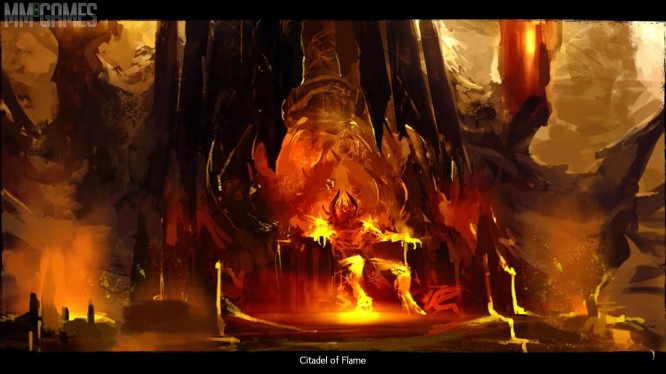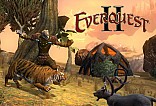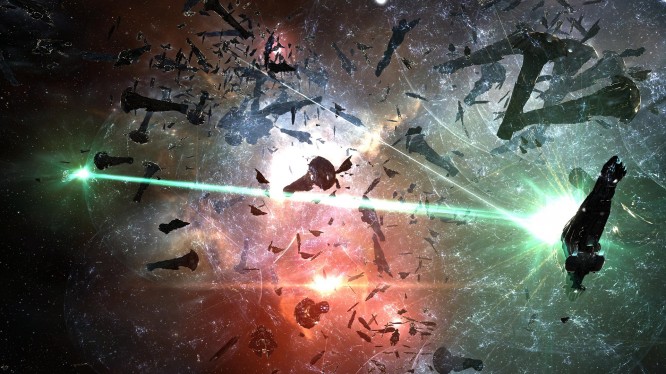

Like most things in life, the more we experience something, the less fascinating it becomes. Even the most magical of experiences can become trite when we’re exposed to it day after day, and sadly, MMORPGs are no different. We all fondly remember our first MMORPG, the way we felt as we explored worlds fraught with peril and danger, earned exciting new loot, and met great new friends. But as we get older, those things begin to lose their luster. We begin to fixate on the more technical aspects of our favorite games, we look to better exploit their systems to our benefit, and and along the way, we lose that sense of wonder that made them so powerful to begin with.
That isn’t to say every MMORPG is guilty of this, but there is no denying that the genre has made a habit out of refining itself rather than reinventing. World of Warcraft pioneered a very specific brand of gameplay that, to this day, remains the large foundation that countless other MMORPGs are built upon. Sure, some might have a different style of combat or some unique twist, but many of them tend to all be headed in the same direction. You earn levels, you maximize your stats, and then, more often than not, you begin the endless climb for slightly better gear while tackling content that never really gets more challenging, but just exists right on that cusp of perfectly balanced difficulty.
So how do we get the magic back? Well, there isn’t much we can do. As many entries in the genre continue to cement themselves in their established design principles, we’ve become overly familiar with what an MMORPG actually is. That said, here are some ideas of things that games could do that would likely go a long way to adding a hearty dose of mystery back into their worlds.
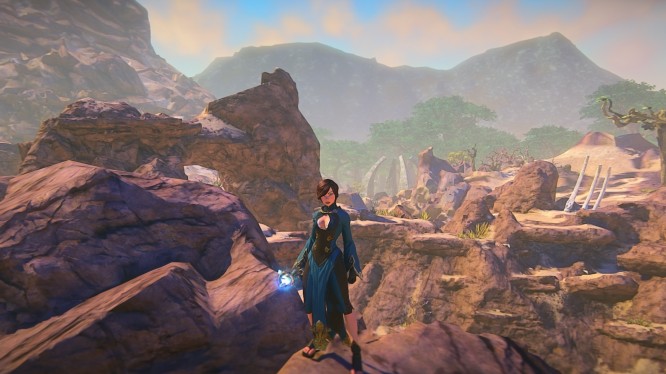
Leveling has been a time-tested mechanic in RPGs since our friend first pulled the top off of the Dungeons and Dragons’ Red Box all those many decades ago. They were, for many years, a necessary way to quantify the relative strength of a character. They made it possible for these games to manage their complex systems by assigning every person and monster a rather arbitrary number that signified how powerful they were. And, for the past decade, levels have been a crutch that MMORPG designers have leaned on out of a sense of traditionalism rather than innovation.
Levels made sense in a game where math was done on a notepad, or with a rudimentary computer that wasn’t always capable of processing vast amounts of data, but now, with how advanced things have become, levels don’t really need to exist. Sure, they still serve a useful purpose, but they are also a way to quantify a wonderful online world and make it fit in a spreadsheet. Not a lot of room for magic between the cells, there, is there?
Levels in an MMORPG have become entirely arbitrary because the content is always designed relative to the level. If you’re playing the game right, you rarely are tasked with taking on a challenge that exceeds your level. Furthermore, it acts as a form of gating that isn’t conducive to creating a believable and realistic world—one capable of enchanting us.
MMORPGs (and RPGs as a whole) are one of the few games guilty of the silly idea that two bears in two separate zones could have vastly different levels. That’s kind of dumb. Even more so when you consider how convenient it is that the farther away from home you get, the tougher all the enemies become.
Instead, MMORPGS should introduce a more organic way of summarizing a character’s overall growth. EVE Online hits close with their idea of skill points which can give you a basic idea of how old a character is but not of how proficient they are in combat. It’s a nuanced system that doesn’t automatically mean a level 20 character kills a level 15 character every time. It allows for a whole host of variables, like how well each is equipped, who is the better player, and what inherent strengths and weaknesses they may have.
By getting rid of levels, you’re also getting rid of the idea that MMORPGs are built upon a framework of math and probability rather than something more mysterious and indecipherable. That doesn’t mean everything needs to be hidden behind a curtain, but don’t build your whole game around the idea that players should work to make numbers on their character sheet go slightly higher. Invest your time in the world itself, and have the character growth be a bonus.
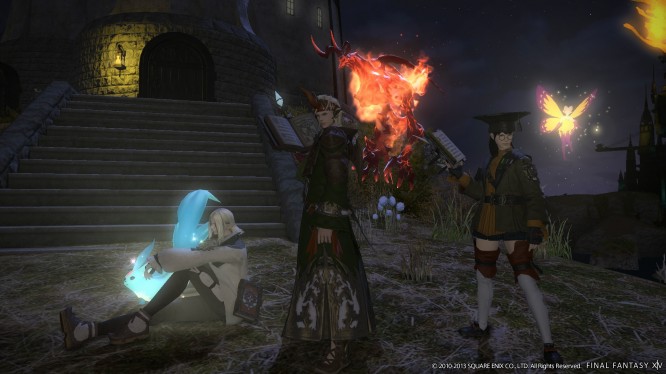
MMORPGs are also guilty of giving away the answers to everything in their worlds. Quests are marked, objectives are marked, and very rarely is there ever anything to discover that doesn’t have a big red glowing arrow over it saying “Hey, check this out!” It’s a philosophy that robs MMORPGs of any sense of discovery. It encourages you to turn your brain off and click through menus without much thought of what is actually happening because you’ve learned to know that if it’s important, the game will tell you.
This can manifest itself in thousands of ways, potentially. But one of the biggest ones I always see is how static and boring the world of an MMORPG actually is. You walk through wondrous cities and, in reality, everything is just a thin illusion. Characters you talk to only have a single line of dialogue and they are doomed to stand forever in their designated spot, repeating their frames of animation for eternity. Instead, these cities should feel alive with characters who look like they are going about their own day. You should be able to talk to them and learn new information, or discover new quests entirely.
Force the audience to pay attention when they play and give them something worth looking for. Build a world like you would a book and don’t intend to do the bare minimum just to get us to turn the page—before long they’ll burn out entirely. Make the world a place to truly discover.

More and more we’re beginning to see concepts pioneered by MMORPGs diced up and placed in other genres of games. Call of Duty: Modern Warfare added a level progression to their multiplayer, Destiny introduced faction reputation grinding and daily quests, and the examples are only beginning to grow. But far too often do MMORPGs ever look at the innovations in other genres to see how they can fold them back into their own experience. One great example of this is Star Wars: The Old Republic, which drew inspiration from Knights of the Old Republic and its branching stories to allow players the ability to interact with quests on a whole new level. You were no longer just a silent maid running around and doing everything that anyone asked of you, but a real person who could influence and shape how events played out.
One of the greatest video game trailers ever released (in my humble opinion) was EVE Online’s “This is EVE” trailer, which featured real voice recordings of players from the game to illustrate how interactive EVE Online really was. It was a massive success for CCP Games and ended up getting EVE Online some serious spotlight, all because it resonated with a truth that has lied at the center of MMORPGs for decades but had rarely been extracted: everyone wants to tell their own story.
But the thing is, most MMORPGs don’t want you to tell your story, they want to tell their story and have you act it out. But by allowing characters to forge alliances and spark betrayals, you encourage them to develop and attachment that few other games can match. They’re no longer invested in the gameplay, but the community surrounding a game.
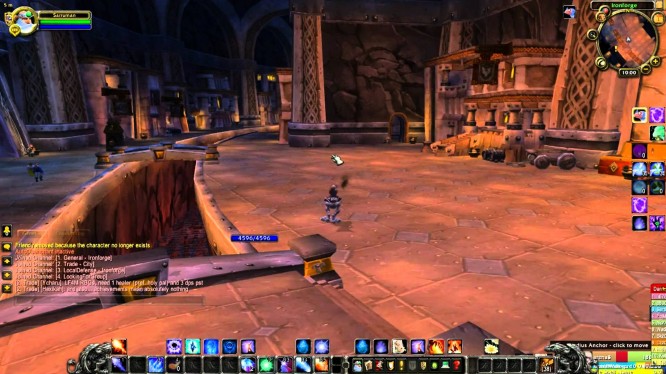
Nothing is worse than playing an MMORPG and being totally alone—especially in an area that should be bustling with life. If you’re way out in the woods, being alone can be a great thing. But no one should walk through a city and be the only one there aside from the few static NPCs. Lot’s of games are guilty of this. They want to create vibrant cities bursting with personality, often times one for each of the main races or faction in a game. But, more often than not, these cities become ghost towns as players congregate around whichever one is the most relevant at the time.
Destiny scraped the surface of this idea with its Tower hub, where players would gather in between missions. If Destiny wasn’t suffering from its own issues with communication and socializing with strangers, it likely would have been a very interesting place to hang out. Create spaces that are interesting and relevant, not just because you want to increase the size of the map or add another city with the same amenities as a dozen others. If zones become barren and underused, invent reasons to draw players back there to repopulate them!
MMORPGs are great, but there is no shame in admitting that many of us aren’t engaging them with the same wide-eyed wonder that we did years ago when we first discovered them. That’s okay, not everything can stay gold forever. Hopefully you like some of my ideas for how to spice things up in the relationship! If you have your own, we want you to share them! Let us know in the comments what you would do to get some of the magic back in your favorite MMORPG!
